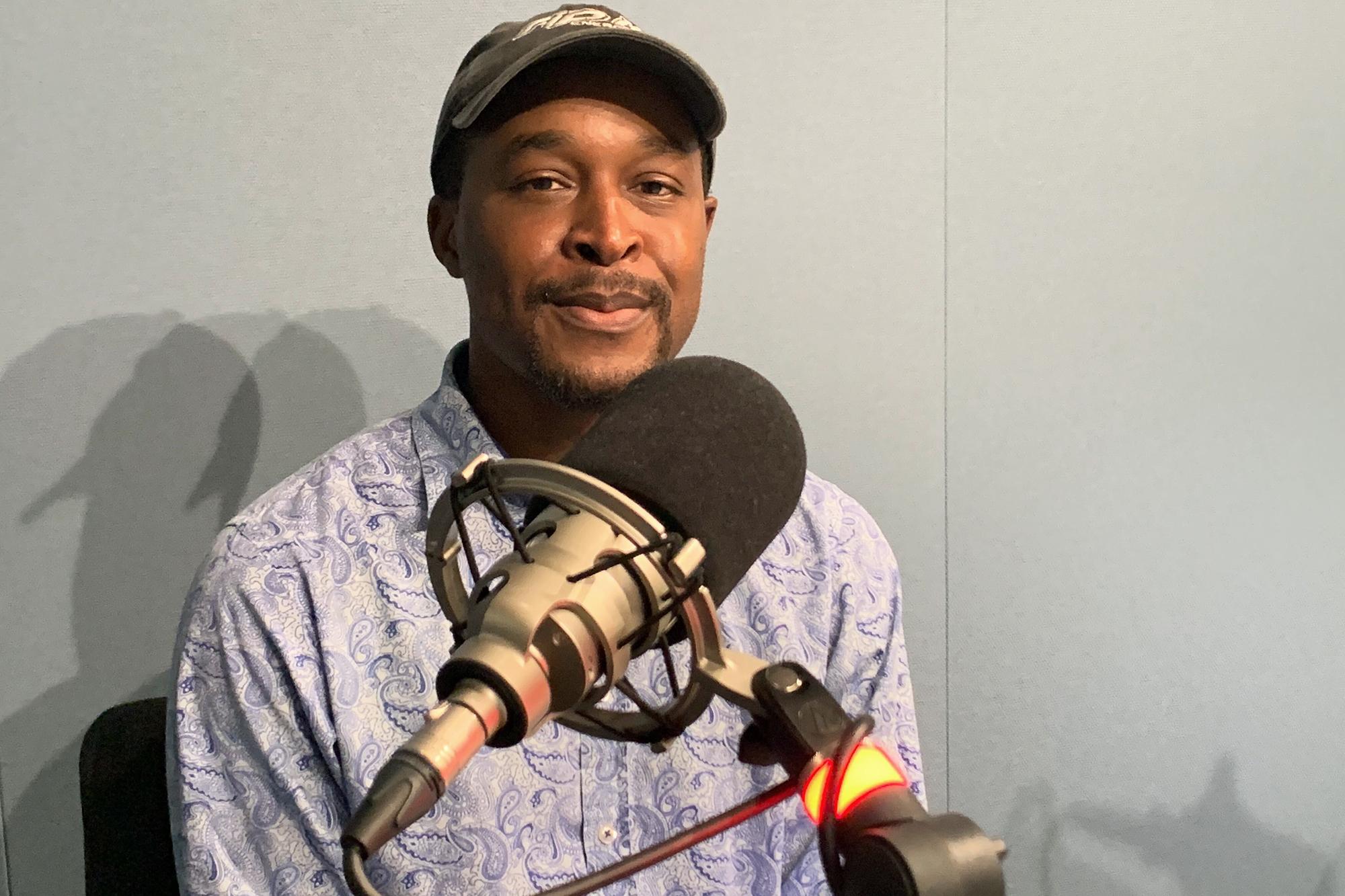
Don’t let people tell you that Libertarians are anti-government, said the party’s candidate for the U.S. Senate.
In fact, the party’s nominee in that race, Raymon Doane, is a state employee whose department collects taxes.
Doane, of Denver, said his job as an analyst at the Colorado Department of Revenue gives him a better understanding of tax policy, and he doesn’t see it in conflict with his party’s long-standing calls to limit government.
“I'm not one of the Libertarians that's anti-government, that's not me. And when I go out and talk to people, they say, ‘Oh, like, you're purely against government.’ I'm like, ‘no, that is not my viewpoint.’ And that's not a lot of viewpoints within the Libertarian party,” he said.
Doane also spoke to Colorado Matters host Ryan Warner about laws that disproportionately affect African-Americans, including himself.
With about 37,000 registered voters, the Libertarian party is the state’s biggest minor party. It was founded in Colorado Springs in 1979.
Interview Highlights
On taxes:
“I would like taxes to be more equitable. If you ever have an opportunity to, and if you need to go to sleep, a good way to help you do so would be to read Title 39 of the Colorado Revised Statutes. And you can see all of the extra revenue generations or the credits to deductions that are applied in there. And it's amazing where taxes are supposed to create economic incubators.
You look at those and just ask yourself one question: Do you think that those actually create economic opportunities for those around you? If the answer is yes, then continue to vote for your elected officials to promote those bills. If the answer is no, then you should really start to take a hard look at what policies are actually being promoted, rather than just the pandering come election time.”
- When You Cast Your Ballot In 2020, Colorado’s National Guard Will Be Patrolling The Digital Frontier
- Oil And Gas Industry Pulls 2020 Ballot Initiatives After Deal With Gov. Polis
- A Pandemic And A Presidential Election Have Sen. Bennet Worried About How College Students Will Vote
- Latest Numbers Show Hickenlooper Has A Fundraising Edge, While Cory Gardner Has The Bigger Bank
On reconciling Libertarian views with government intervention in the COVID-19 pandemic:
"(The shutdown has been) way too extreme … I'm a big advocate for suggesting things to people, because when you mandate people do things like, (you) can't go outside. Or you start to deem certain workers essential or non-essential, that becomes a very sticky situation, especially when it's on a wide range.
If you look at where Huerfano County, Los Animas, Dolores, Saguache, populations in cities are much smaller than Denver County, you want to allow them to maintain their sovereignty by dictating what they're going to do on their own.”
On systemic racism:
“Just going off of George Floyd — him losing his life over a counterfeit bill a lot of people don’t understand that … systemic racism does exist it’s not necessarily blatant. So that was just a counterfeit bill. But then you look at legalization of marijuana, African-Americans are prone to be arrested more often than their white counterparts for possessing this drug in different states. Obviously it's legal here in Colorado. But if you were to go to our surrounding neighbors, that is not the case.”
On whether recent demonstrations in Aurora and Denver were riots:
“Half and half, yes. In the beginning, they were protests, peaceful assemblies. I definitely accept that. But when you start to see people destroy a government building and you say, 'Oh yay, we're going to tear down statutes. We're going to do all that.' I can tell you from a taxation standpoint, money is going to go back to fix those things.
And when that money has to be reallocated to fix those government buildings, when that money has to be reallocated to replace those statutes, guess what it's taken away from. So in reality, we have to take a different approach because if we're going to continue to destroy stuff, I understand the frustration. I understand the fear and I understand the anger, but we have to look at the ballot box first.”
Answers have been edited and condensed for clarity. Read more about how CPR News and Colorado Matters make editorial decisions around candidate coverage and interviews, here.








